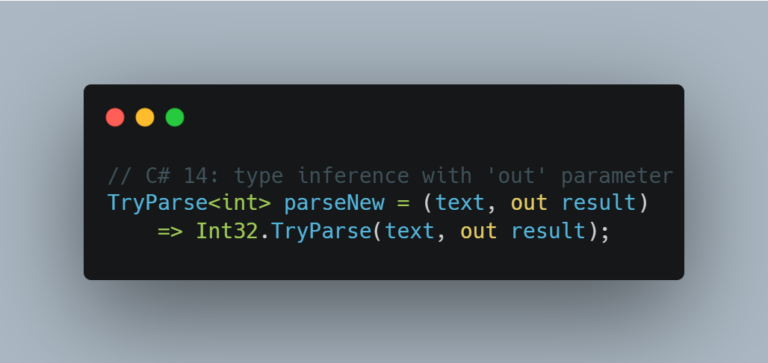C# 14: Simplified parameters with modifiers in lambdas
Lambda expressions have been a core feature of C# for many years, allowing developers to write inline functions or callbacks in a concise way. In C#, a lambda can have explicitly typed parameters (where you specify each parameter’s type) or implicitly typed parameters (where the types are inferred from context). Prior to C# 14, if…
